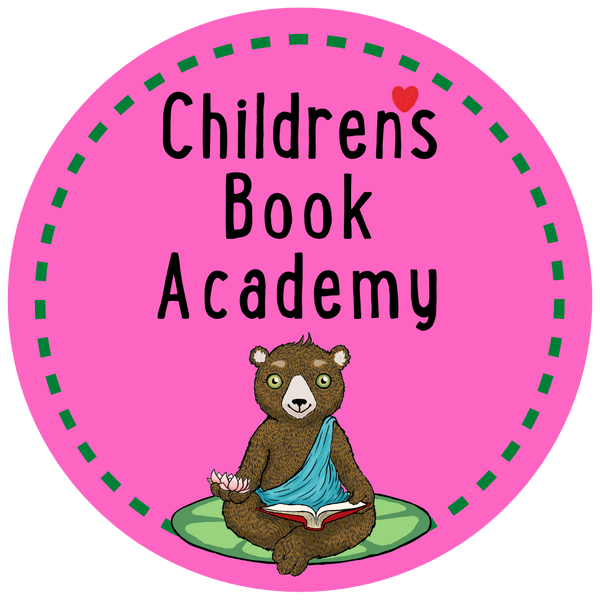by Mira Reisberg
Because it's the end of the first week of a new course, I've been too busy to spend the hours of putting a new blog post together, plus I've been disheartened by the lack of comments or responses to this labor of love. So today I'm doing a shorter post that draws upon other things that I've already written that might be helpful.
This month I did some editor first page critiques for Kathy Temean's blog Writing and Illustrating for Children. And while I was doing the first page critiques, I realized that part of why I love doing critiques so much is not only the helping part but also the selfish part of how much I learn from doing them. It is so difficult to see your own work no matter how experienced you are and critiquing how other's work can be improved is often insightful into how you can apply those same principles to your own work. Critiquing also teaches you how to be more analytical in deconstructing stories, which of course helps with your own story self-analysis.
Over the years I've developed this critiquing template for our students to use with their own work or in the small critique groups that we set up. If you find it helpful, please leave a comment below. And if you want to take a peek at the first page critiques that I did for Kathy Temean's blog, simply click here!
Because it's the end of the first week of a new course, I've been too busy to spend the hours of putting a new blog post together, plus I've been disheartened by the lack of comments or responses to this labor of love. So today I'm doing a shorter post that draws upon other things that I've already written that might be helpful.
This month I did some editor first page critiques for Kathy Temean's blog Writing and Illustrating for Children. And while I was doing the first page critiques, I realized that part of why I love doing critiques so much is not only the helping part but also the selfish part of how much I learn from doing them. It is so difficult to see your own work no matter how experienced you are and critiquing how other's work can be improved is often insightful into how you can apply those same principles to your own work. Critiquing also teaches you how to be more analytical in deconstructing stories, which of course helps with your own story self-analysis.
Over the years I've developed this critiquing template for our students to use with their own work or in the small critique groups that we set up. If you find it helpful, please leave a comment below. And if you want to take a peek at the first page critiques that I did for Kathy Temean's blog, simply click here!
Children’s Book Academy Manuscript Critique Sheet
Remember to Critique with Kindness
Manuscript __________________________
Author’s Name _______________________
Your name __________________________
1. Is the hook or originating problem compelling, making you want to read on? How might it be improved? Alternately, is the nonfiction or concept book beginning potentially fascinating to kids through language or questioning? Is it kid friendly?
2. Are the characters or topic distinctive, appealing or intriguing? Why do we care enough about them to spend time reading? How might they be strengthened through voice, characterization, or action? Do the characters change by the end of the story?
3. Is the plot and ending satisfying with 3 (or more for older age readers) attempts and failures before the main character finally gets what they want or achieves their goal?
If not how can this be improved?
4. If the story doesn’t have a plot, what makes it satisfying and how might it be improved?
5. Can you identify any underlying universal themes, e.g., friendship, trust, moving, fear? What is the story really about?
6. Is there an identifiable foundational structure – e.g., a geographic structure - through a house, from the country to the city and back again, different countries or planets)? Is there a chronological structure - seasons of the year, days of the week, cycles of life? If you’re writing a novel and are not using chapter headings, how is the story structured?
Might it be improved?
Remember to Critique with Kindness
Manuscript __________________________
Author’s Name _______________________
Your name __________________________
1. Is the hook or originating problem compelling, making you want to read on? How might it be improved? Alternately, is the nonfiction or concept book beginning potentially fascinating to kids through language or questioning? Is it kid friendly?
2. Are the characters or topic distinctive, appealing or intriguing? Why do we care enough about them to spend time reading? How might they be strengthened through voice, characterization, or action? Do the characters change by the end of the story?
3. Is the plot and ending satisfying with 3 (or more for older age readers) attempts and failures before the main character finally gets what they want or achieves their goal?
If not how can this be improved?
4. If the story doesn’t have a plot, what makes it satisfying and how might it be improved?
5. Can you identify any underlying universal themes, e.g., friendship, trust, moving, fear? What is the story really about?
6. Is there an identifiable foundational structure – e.g., a geographic structure - through a house, from the country to the city and back again, different countries or planets)? Is there a chronological structure - seasons of the year, days of the week, cycles of life? If you’re writing a novel and are not using chapter headings, how is the story structured?
Might it be improved?





